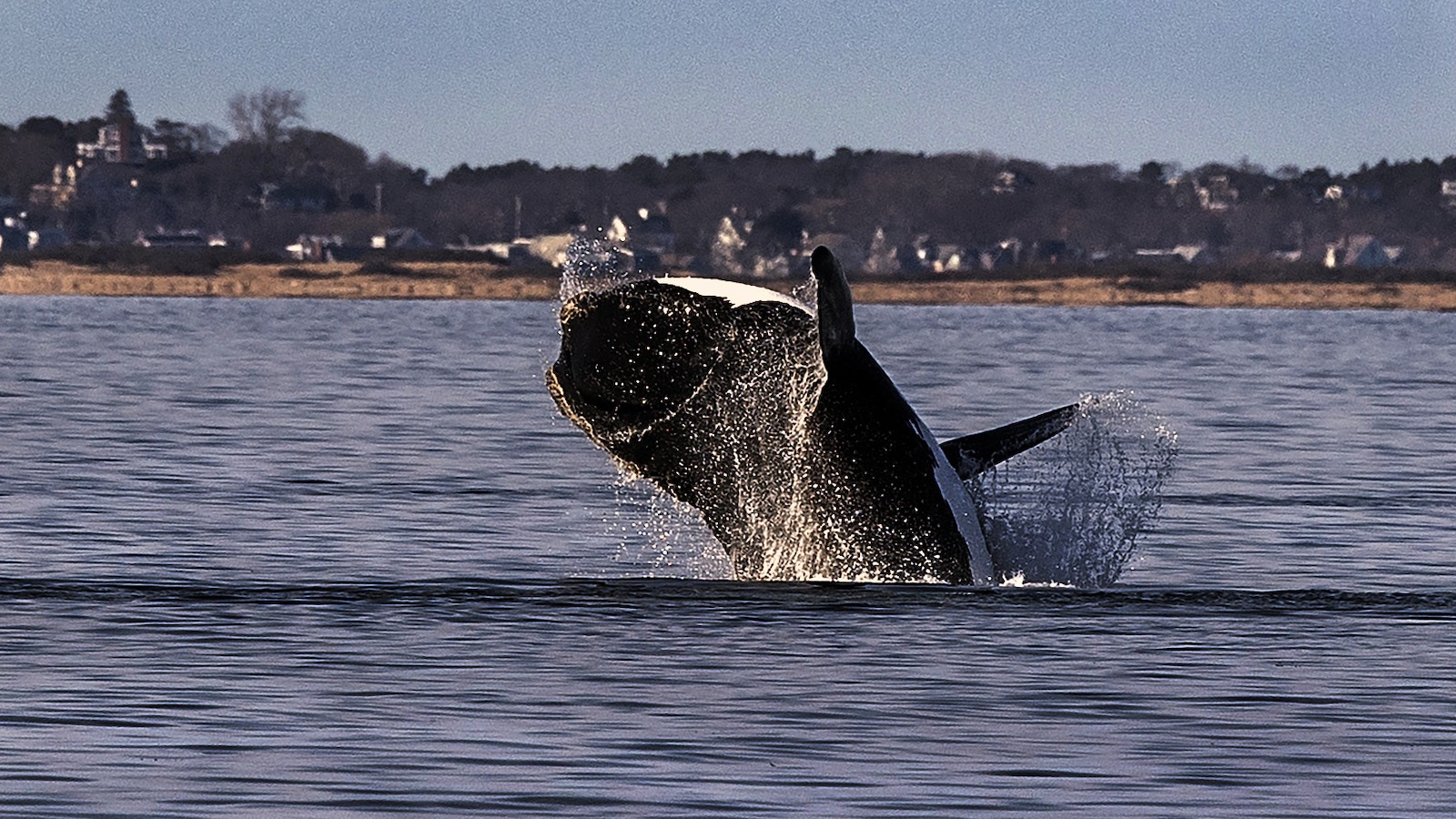This coverage is made possible through a partnership with Grist and WABE, Atlanta’s NPR station.
Federal regulators are abandoning a proposal to expand ocean speed limits that were designed to protect North Atlantic right whales.
The whales, which give birth off Georgia’s coast in the winter, are nearing extinction: just 370 remain, and vessel strikes are one of their leading causes of death.
Marine industry groups applauded the move to abandon a rule they have criticized as overly broad, while whale advocates said they were disappointed.
“The whales are going to suffer because of the inaction by the Biden administration,” said Gib Brogan, campaign director with the advocacy group Oceana.
There are already some seasonal speed limits on large ships designed to cut down the risk of strikes during times of year when the whales are known to be in certain areas — like off the Georgia coast during the winter calving season.
In 2022, the National Oceanic and Atmospheric Administration proposed expanding those restrictions to include smaller boats and to apply over larger areas of the ocean for longer periods. The agency also proposed making some voluntary speed limits mandatory.
Whale scientists and advocates had celebrated the proposal and pushed for its adoption because smaller boats can and do kill right whales. They also emphasized the urgency, as the North Atlantic right whale population numbers falter, and whale behavior shifts due to climate change.
But marine industry groups fought the proposed changes, which they argued could hurt the fishing and boating industries and other related businesses. Among other criticisms, they contended that smaller boats often need the ability to move fast to respond safely to changing ocean conditions. They also said the rules would cancel or alter thousands of recreational fishing trips that are important for coastal economies.
“The rule’s many blind spots would have created dire consequences for boater safety and accessibility, the economic vitality of coastal communities and marine manufacturers, and the livelihoods of countless supporting small businesses,” said Frank Hugelmeyer, president of the National Marine Manufacturers Association, in a statement.
He added that the rule “failed to distinguish between large, ocean-crossing vessels and small recreational boats, which could not be more different from each other.”
The rule was never implemented, and now the agency is withdrawing it just days before a new administration enters the White House — a move whale advocates said was political, based on its timing.
Congress can review and overturn some recent actions taken by federal agencies, under a law known as the Congressional Review Act. This often comes into play when a new presidential administration and new Congress take over, because it gives them the power to rescind recent actions taken by a prior administration. With this mechanism, Congress can also block the agencies from taking similar actions in the future.
Whale advocates worry that’s exactly what a Trump administration and Republican-controlled Congress would have done with this rule had it gone into effect within the review window: they could have overturned the rule and prevented future changes to vessel speed rules to protect right whales.
“So the real deadline for the Biden administration was this past summer,” said Brogan. “They knew that they needed to act this past summer to put durable protections on for North Atlantic right whales, but with an election and other things in play, they chose not to.”
Whale advocates and scientists said they would continue to push for expanded right whale protections, despite what New England Aquarium conservation scientist Jessica Redfern called a “serious setback” in the effort to save right whales from extinction.
“I’m gonna have hope, because I do have hope that we can save this species,” she said.
The aquarium maintains one of the longest-running right whale research programs in the country, and Redfern said the evidence is clear: the whales can recover “if we stop killing them.”
Source link
Emily Jones grist.org

